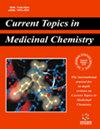阿尔茨海默病中的非编码 RNA:功能和治疗意义概述
IF 2.9
4区 医学
Q3 CHEMISTRY, MEDICINAL
Current topics in medicinal chemistry
Pub Date : 2024-04-15
DOI:10.2174/0115680266293212240405042540
引用次数: 0
摘要
:阿尔茨海默病(AD)是一种多因素疾病,由遗传、表观遗传和环境因素之间复杂的相互作用引起。它是一种即将流行的疾病,缺乏有效的药物干预措施。高通量测序技术和全面基因组评估的出现,揭示了非编码 RNA(ncRNA)家族的多样性。ncRNA 是一系列生物过程的关键调节因子,目前正在成为诊断和治疗包括神经退行性疾病在内的各种疾病的重要角色。有几种 ncRNA 在大脑中明显增强,有可能调节认知能力和中枢神经系统的其他功能。越来越多的证据表明,ncRNA 在调节 tau 磷酸化、Aβ 生成、神经炎症和神经元存活方面发挥着重要作用。这表明它们作为一种生物标记物和抗抑郁药物靶点具有治疗意义。本综述总结了现有文献中关于 ncRNA 在 AD 发病机制中的功能意义及其对临床即将产生的影响。本文章由计算机程序翻译,如有差异,请以英文原文为准。
Noncoding RNAs in Alzheimer’s Disease: Overview of Functional and Therapeutic Significance
: Alzheimer’s disease (AD) is a multifactorial disorder resulting from the complex interaction between genetic, epigenetic, and environmental factors. It represents an impending epidemic and lacks effective pharmacological interventions. The emergence of high throughput sequencing techniques and comprehensive genome evaluation has uncovered a diverse spectrum of non-- coding RNA (ncRNA) families. ncRNAs are the critical modulators of an eclectic array of biological processes and are now transpiring as imperative players in diagnosing and treating various diseases, including neurodegenerative disorders. Several ncRNAs are explicitly augmented in the brain, wherein they potentially regulate cognitive abilities and other functions of the central nervous system. Growing evidence suggests the substantial role of ncRNAs as modulators of tau phosphorylation, Aβ production, neuroinflammation, and neuronal survival. It indicates their therapeutic relevance as a biomarker and druggable targets against AD. The current review summarizes the existing literature on the functional significance of ncRNAs in AD pathogenesis and its imminent implications in clinics.
求助全文
通过发布文献求助,成功后即可免费获取论文全文。
去求助
来源期刊
CiteScore
6.40
自引率
2.90%
发文量
186
审稿时长
3-8 weeks
期刊介绍:
Current Topics in Medicinal Chemistry is a forum for the review of areas of keen and topical interest to medicinal chemists and others in the allied disciplines. Each issue is solely devoted to a specific topic, containing six to nine reviews, which provide the reader a comprehensive survey of that area. A Guest Editor who is an expert in the topic under review, will assemble each issue. The scope of Current Topics in Medicinal Chemistry will cover all areas of medicinal chemistry, including current developments in rational drug design, synthetic chemistry, bioorganic chemistry, high-throughput screening, combinatorial chemistry, compound diversity measurements, drug absorption, drug distribution, metabolism, new and emerging drug targets, natural products, pharmacogenomics, and structure-activity relationships. Medicinal chemistry is a rapidly maturing discipline. The study of how structure and function are related is absolutely essential to understanding the molecular basis of life. Current Topics in Medicinal Chemistry aims to contribute to the growth of scientific knowledge and insight, and facilitate the discovery and development of new therapeutic agents to treat debilitating human disorders. The journal is essential for every medicinal chemist who wishes to be kept informed and up-to-date with the latest and most important advances.

 求助内容:
求助内容: 应助结果提醒方式:
应助结果提醒方式:


